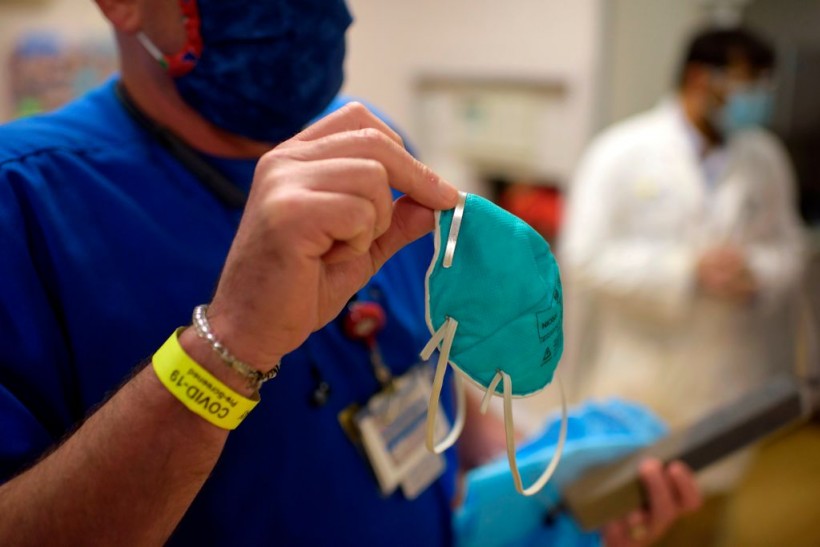The Centers for Disease Control and Prevention (CDC) recently announced it has dropped its universal masking recommendation for healthcare settings, with the exception of areas with high COVID-19 transmission, as well as other special circumstances.
Per MedPage Today, as noted in the CDC guidance issued late last week, updates were made to reflect the high vaccine levels, as well as infection-induced immunity and the effective treatments' efficacy and prevention tools.
CDC Scuttles Universal Mask Recommendations for Healthcare [ https://t.co/AU1P4dh8vY ] of areas of high #Covid19 transmission and other special https://t.co/9svo7X6QEU for testing, the CDC noted that the benefits of screening testing to https://t.co/pBEDJiHb8N
— Tian_A1 (@Tian_A1) September 28, 2022
In its guidance, the agency also said that the guidance also provides a framework for facilities to facilitate infection prevention, as well as control practices. Such practices include universal masking "based on their individual circumstances."
The agency made several other changes that are associated with infection control among healthcare workers which include recommending that vaccination status does not guide masking, screening, or post-exposure practices.
ALSO READ: What Are the Best COVID-19 Face Masks for Classrooms?

The CDC recently announced it has dropped its universal masking recommendation for healthcare settings, with the exception of areas with high COVID-19 transmission, as well as other special circumstances.
When Mask Is Needed and When Is It Not?
The CDC guidance also includes testing of asymptomatic healthcare workers and those who do not have any known exposure is currently at the discretion of the facility, with some exceptions.
For a broader explanation, asymptomatic patients should not be required to undergo isolation or follow any transmission-based precaution because of close contact with someone with COVID-19 infection.
The CDC also clarified that its decision to screen healthcare workers who are asymptomatic, including those who work in nursing homes, must be "at the healthcare facility's discretion."
A similar The Hill report said that the agency also noted that community transmission is currently the key metric for building recommendations of "select practices in healthcare settings."
More so, when levels are high, source control like masking for one is recommended for everyone in the healthcare background when they are in areas of the facility where they could experience patients.
High Level of Community Transmission
At present, 70 percent of the whole country is at a "high level" of community transmission, the CDC indicated in its COVID-19 data tracker.
Nonetheless, even when levels of transmission are high in an area, healthcare providers can choose not to mask when in well-defined areas that are limited from patient access, like staff meeting rooms, if people do not meet specific criteria.
One of these criteria is when one has a suspected or confirmed COVID-19 or another respiratory infection. Also part of the bases is having had close contact with a COVID-19 patient, visitor, or a higher-risk exposure with a healthcare worker.
Moreover, working in a part of the facility where there is a COVID-19 outbreak and receiving a recommendation for masking from public health officials are also part of the criteria.
Benefits of Screening Testing
When the community levels are high, a unique metric used to analyze the strain of COVID-19 on the healthcare system, it would be recommended that all members of the community should wear masks indoors, including healthcare workers.
In terms of testing, the CDC also noted that the benefits of screening testing to determine asymptomatic infections are possibly lower in nations where SARS-CoV-2 transmission is lower. Additionally, such outcomes continue to be helpful in some circumstances, like when carrying out higher-risk procedures or caring for immunocompromised patients, to identify which infection could control protections are warranted.
Report about CDC's decision to scuttle universal mask recommendation is shown on WTAJ News's YouTube video below:
RELATED ARTICLE: Cloth, Surgical Face Coverings Recommended to Be Upgraded Into N95 Mask That Can Be Decontaminated for 25x
Check out more news and information on COVID-19 and Face Masks on Science Times.














